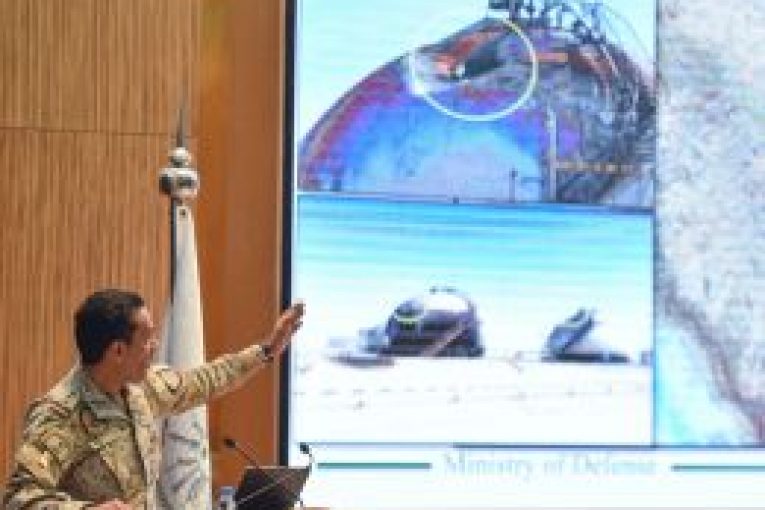
Saudi Arabia on Wednesday said weekend attacks on the kingdom’s critical oil infrastructure were “unquestionably sponsored by Iran,” adding the strikes originated from the north and therefore weren’t launched from Yemeni territory.
“Despite Iran’s effort to make it appear so,” the attack didn’t come from Yemen, said Turki al-Maliki, a spokesman for the Saudi defence ministry. He stopped short of saying the launch location was in Iran.
“Data analysis of the attack sites indicates weapons of Iranian origin,” he said. “When we determine the launch point, it will be announced.”
Al-Malki said a total of 25 drones and missiles were launched at two oil plants in last weekend’s strikes, including what he identified as Iranian Delta Wing unmanned aerial vehicles (UAV) and “Ya Ali” cruise missiles. He said the missiles have been used by Iran’s Revolutionary Guards.
“The attack was launched from the north and unquestionably sponsored by Iran,” he told a news conference. “The evidence … that you have seen in front of you, makes this undeniable.”
Iran has denied responsibility for the attacks, with President Hassan Rouhani saying they were carried out by Yemeni Houthi rebels who have been fighting a Saudi-led coalition for four years.
Just before the press briefing, President Donald Trump said that he was increasing U.S. sanctions on Iran following the attacks, which raised tensions in the energy-producing region.
Trump has been ramping up sanctions on the Islamic Republic since quitting the 2015 nuclear deal with Iran, including severe restrictions on the ability of Tehran to sell oil.
Additional economic sanctions could be a route to avoiding direct military conflict with Iran following the weekend attacks. While Trump initially said the U.S. is “locked and loaded” to respond, he has since signalled that he isn’t eager for another Middle East conflict.
This satellite overview taken Monday from the U.S. government shows damage to oil/gas infrastructure from weekend drone attacks at Abqaig in Saudi Arabia.
Iran’s economy has already been under severe pressure from existing sanctions, yet some analysts said there are still a number of potential targets for restrictions, including some in the construction sector, additional companies on the Tehran stock exchange and foundations controlled by the regime or Iranian Revolutionary Guard Corps.
But with the vast majority of Iran’s economy dependent on oil sales, additional sanctions may have little more than a marginal impact.
Al-Maliki showed surveillance video purporting to show drones moving in a north to south direction. “We are working right now to share the information that we have from the data, from the chips, with the United Nations experts,” he said.
With assistance from Josh Wingrove.
You can read more of the news on source
